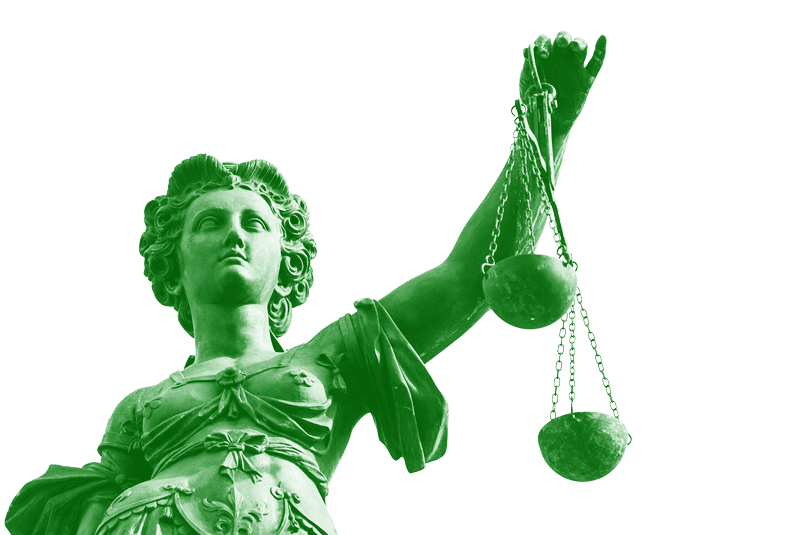I have been increasingly aware of, and disturbed by, instances of local police declining the requests of universities to help the universities–which generally do not have law enforcement officers capable of dealing with hundreds of people resisting arrest–arrest protestors and remove their protest encampments. I was preparing to write a blog post about this, but Hans Bader beat me to it. So rather than reinvent the wheel, with permission, below is a shortened version of Hans' post:
You have a right to free speech, but that doesn't give you a First Amendment right to camp out on my lawn with protest signs. That's trespassing. But government officials sometimes allow trespassing when they sympathize with the trespasser's viewpoint. Baltimore, Philadelphia, and Washington, DC have refused to remove progressive anti-Israel protesters camping out at private universities — Johns Hopkins University, the University of Pennsylvania, and George Washington University.
Law professor David Bernstein notes that "Baltimore police will not assist in removing illegal encampment at Johns Hopkins University. Worse, they actually praise the illegal encampment as a valid exercise of First Amendment rights, which is complete nonsense. It's especially nonsensical because most of the protesters are trespassers with no connection to the university."
"The City of Baltimore strongly stands with every person's First Amendment rights. Barring any credible threat of violence or similarly high threshold to protect public safety, BPD currently has no plans to engage solely to shut down this valid protest or remove protesters," said the Baltimore police department in a statement apparently dictated by the mayor's office.
Contrary to what this statement claims, there is no "First Amendment" right to camp out on public property, much less private property like the campus of Johns Hopkins University, which can tell trespassers to leave regardless of whether they are engaged in First Amendment activity. Camping out on someone else's property is not a "valid protest," even if the protesters have not yet made any "threat of violence." The Supreme Court ruled that protesters do not have a right to camp out even on public property devoted to public use, like national parks, in Clark v. Community for Creative Non-Violence (1984).
Yet Neetu Arnold of the National Association of Scholars notes that Philadelphia is similarly refusing to clear out a protest camp at the University of Pennsylvania, a private Ivy League university: "Philadelphia Police ignores Penn's request to disband unauthorized encampment. The university has to provide proof that the encampment poses an imminent danger. Penn students have received multiple warnings to avoid the immediate area." The Daily Pennsylvanian reports that the "Philadelphia Police Department declines to disband encampment after Penn requests immediate help."
As a University of Pennsylvania alumnus notes, these illegal protests are only being allowed by progressive officials because of the viewpoint they are expressing. If the protesters were "white nationalists waving nazi flags and telling black people they should go back to Africa I'm sure [police] would be out there pretty quickly" to remove them.
As Professor Bernstein observes, allowing the illegal encampment at Johns Hopkins to persist despite the university's objections is a bad idea: "This one poses a special danger to public safety because, I'm told by a reliable source, 'almost none' of the people manning the encampment are Hopkins students. They are professional agitators from 'the community.'"
No city would tolerate such trespassing if the protesters' ideology were different — such as if they were white nationalists, whose speech is protected by the First Amendment despite their repellent ideology. (The Supreme Court ruled in favor of a First Amendment lawsuit by white nationalists in 1992, because even racist protests are protected by the First Amendment, see Forsyth County v. Nationalist Movement (1992). Even on school grounds, racist speech can be protected, such as Nazi meetings on school grounds, see National Socialist White People's Party v. Ringers (1973)).
This favoritism by progressive cities violates the First Amendment. According to the Supreme Court, the government cannot favor certain kinds of protests over others. (See Police Department v. Mosley (1972)).
When someone posted non-threatening confederate-flag flyers saying "Huzzah for Dixie" at American University in 2017, the local FBI office investigated the flyers as if the First Amendment did not exist, at the request of the university. Law enforcement investigated the speech, even though courts in Washington, DC had ruled that far worse, blatantly racist speech was protected by the First Amendment. (See, e.g., United States v. Popa (1999)).
Yet now, DC police are refusing to remove trespassing students camped out on the grounds of George Washington University. As the National Review reported on April 28:
Police in Washington, D.C., rejected requests from campus officials at George Washington University to clear anti-Israel protesters from their campus encampment this week, fearing that doing so could be bad publicity.
Although police were poised to disband the encampment at around 3 a.m. on Friday morning, city officials in the police chief's and mayor's office told police to stand down and said that it would look bad publicly for police to disrupt a "small number of peaceful protesters," the Washington Post reported on Friday…George Washington officials originally wanted to clear the encampment by 7 p.m. on Thursday. The school said on Friday that protesters "violated several university policies and were trespassing" and added that "any student who remains in University Yard may be placed on temporary suspension and administratively barred from campus. Several students have already been notified of their suspensions." Police who reportedly lined the encampment's perimeter on Friday warned protesters that they would soon issue arrests, but they never did.
"After demonstrators refused multiple instructions to relocate, GWPD requested additional support from the DC Metropolitan Police to ensure the safety and security of all our community members through a measured and orderly approach," George Washington said in a statement….Dozens of anti-Israel protesters are still occupying the encampment…At a rally held at George Washington this week, a speaker was recorded saying, "There's only one solution, intifada revolution. We must have a revolution so we can have a socialist reconstruction of the United States of America."
David Bernstein adds: Denver police have also refused to help with an encampment. UCLA police sat by and did nothing for days while members of encampment prohibited, by physical forces, students from getting to their classes or the library via the encampment without permission. Police only intervened after violence broke out when counter-demonstrators confronted the encampers.
From what I can gather, the problem in cities is usually not that the police department itself is unwilling to assist, but that they are under orders from the mayor, afraid of upsetting far left constituents, to stand down. This is going a bit beyond my expertise, but from what I understand the Justice Department could and should, but won't under the Biden administration, investigate whether these police departments are violating the terms of their federal funding, and also denying equal protection of the law, by refusing to enforce the law for ideological and political reasons. An added factor is that this lack of enforcement is to the specific detriment of Jewish students who have disproportionately faced threats, intimidation, and violence from people at the encampments.



Show Comments (1)